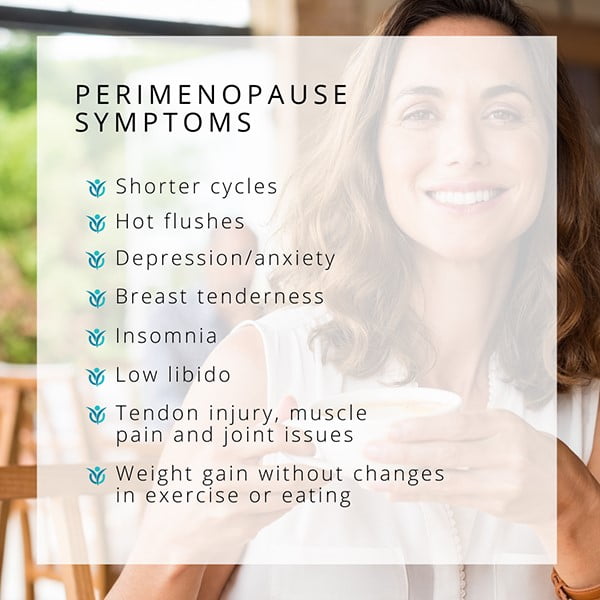Perimenopause, also known as the “change of life”, is the time when a woman begins to experience symptoms associated with menopause. This process can begin up to 10 years before menopause actually occurs. While perimenopause can be uncomfortable, it is a natural process that all women go through. There are treatments available that can help lessen your symptoms.
As you age, your body goes through plenty of changes. One change that many women experience is perimenopause, which is the transition period leading up to menopause. Just as every woman’s experience with menopause is unique, so too is each woman’s journey through perimenopause. The average length of perimenopause is four years, but for some women it may last only a few months or up to 10 years. Menopause itself is defined as 12 consecutive months without a menstrual period. Check out at Welzo for more information about perimenopause testing and what to do if your results aren’t what you expected. Plus, get some tips on how to cope with perimenopause symptoms!

What Causes Perimenopause?
The most common symptom of perimenopause is irregular periods, which may be longer or shorter than usual and may occur more or less often than normal. Other common symptoms include hot flashes, sleep problems, vaginal dryness, mood swings, weight gain, and decreased sex drive. Not all women will experience all of these symptoms, and some women may not experience any symptoms at all. As women age, their ovaries produce less estrogen. This decrease in estrogen can cause the following changes and symptoms:
Irregular periods:
One of the most common signs of perimenopause is irregular periods. A woman’s periods may become longer or shorter, lighter or heavier, and they may even come more or less often than usual. However, it’s important to note that not all women experience this symptom.
Hot flashes:
Hot flashes are another common symptom of perimenopause. A hot flash is a sudden feeling of warmth that spreads over the body and is often accompanied by a flushing of the skin or redness in the face. Hot flashes can last anywhere from a few seconds to several minutes and can occur at any time, day or night.
Trouble sleeping:
Many women find it difficult to sleep during perimenopause due to hot flashes, night sweats, anxiety, and other symptoms. This can lead to fatigue and feelings of being run down.
Mood swings:
The changes in hormone levels during perimenopause can also cause mood swings. Some women may feel more anxious or irritable than usual, while others may experience depression.
Weight gain:
Estrogen helps to regulate metabolism, so when levels of estrogen drop during perimenopause, some women may start to see an increase on the scale. In addition, many women also experience a shift in their body composition as they lose muscle mass and gain fat mass during this time.
Memory problems:
Some women may notice that they have difficulty concentrating or remembering things during perimenopause. This is sometimes referred to as “brain fog.” While it’s not clear exactly why this happens, it may be due to changes in hormone levels or sleep disruptions.
These are just some of the most common symptoms associated with perimenopause. Every woman experiences this transition differently, so it’s important to take a perimenopause test or talk to your doctor if you’re having any difficulties during this time.

How to Cope with Perimenopause
If you are experiencing any bothersome symptoms during perimenopause, there are several things you can do to help lessen the effects. Living a healthy lifestyle by eating right, exercising regularly, and getting enough sleep can help reduce hot flashes and night sweats as well as improve your overall mood and energy levels. There are also topical creams and vaginal lubricants that can help alleviate vaginal dryness. If your sleep problems persist despite making lifestyle changes, talk to your doctor about possible treatments such as hormone therapy or low-dose antidepressants.
If you’re in your late 40s or early 50s and cause a variety of physical and mental symptoms, or any other bothersome symptoms, you may be in perimenopause. This transitional period precedes menopause and can last anywhere from a few months to 10 years. While there is no one-size-fits-all solution for coping with perimenopause, making some lifestyle changes and talking to your doctor about possible treatments can help lessen the effects of this natural process.





